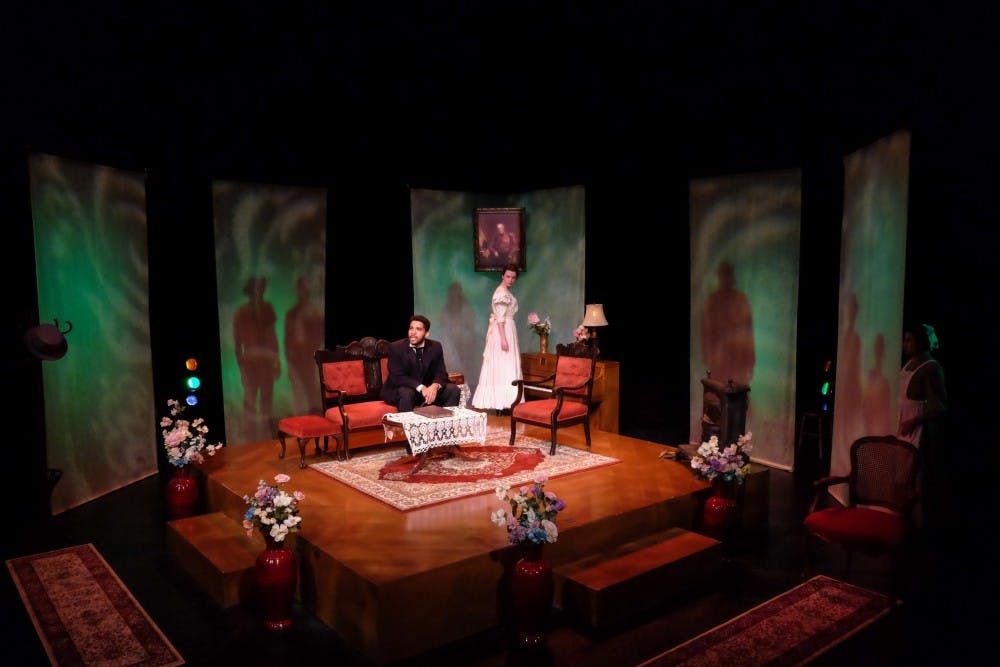The Kenan Theatre Company’s Hedda Gabler, directed by Mark Perry and based on the famous Henrik Ibsen play, is about a woman on the edge. Finding herself in a life that doesn’t fulfill her, the titular character seeks out to gain a sense of agency by any means necessary. She stirs up trouble in her social circle and breaks decorum in order to finally exercise control in her life, and the story that follows is at once exciting and heartbreaking.
The Ibsen drama, now over a century old, has been adapted many times over the years, and for good reason. It is a fully-realized character study, taking audiences into the inner workings of a woman looking for her place in the world. Furthermore, its female-led narrative deals with the ways in which women are saddled with the expectations of men, a theme that feels relevant today.
Perry’s production, which will open its doors Friday, is a success, particularly in regards to its great cast. Tori Jewell, who plays Hedda here, delivers a knockout performance and imbues the character with incredible dimension. The world that Hedda inhabits is civil and refined, but she can barely contain her feelings of anger and frustration.
Jewell is incredibly effective at fracturing the public mask that Hedda wears, giving us glimpses at the tormented private life she tries to keep blocked off from the other characters. Hedda eventually turns to deceit and manipulation in her search for meaning, and some of her more cutting remarks are even violent in their intention, but Jewell grabs onto the character’s emotional core and forces us to sympathize with her.
LJ Enloe plays Hedda’s husband, George Tesman, a milquetoast scholar who is completely oblivious to Hedda's discontent. Hedda’s constant irritation with George leads to some of the (mostly serious) play’s funniest scenes, and Enloe is great is the role. His George is so tone-deaf that it would be easy to play him as being one-dimensional, but Enloe portrays him as an ultimately well-meaning man who doesn’t realize how little he understands his wife.
Playing another one of the men in Hedda’s life is Brandon Morris, who takes on the role of Eilert Lovborg, a troubled writer who has a history with Hedda. The character’s stage time is limited, but Morris is a magnetic presence who makes each of Eilert’s lines feel significant, and his chemistry with Jewell is strong.
Each supporting role is vivid and interesting. Aunt Juliana, the matriarch of the Tesman family, is played by Kendall Walker, who excels in capturing the character’s polite and refined nature. Jackson Seymore plays Judge Brack, the only character in the story who is as conniving as Hedda. He’s one of the livelier characters, and Seymore has fun with the part.
Eliana Newkirk plays Thea Elvsted, a passive woman who gets caught up in Hedda’s schemes. Thea is innocent and often pitiful, and she serves as a good foil for Hedda. Newkirk brings genuine emotional urgency to the role. Another sympathetic performance comes from Marisa Clemente, who plays one of the only earnest characters, a servant named Berte.
The set and costume design is fantastic, giving audiences a chance to enjoy some decadent period piece visuals. This aesthetic, mixed with the performances, makes the late-19th century setting feel believable and realistic.



